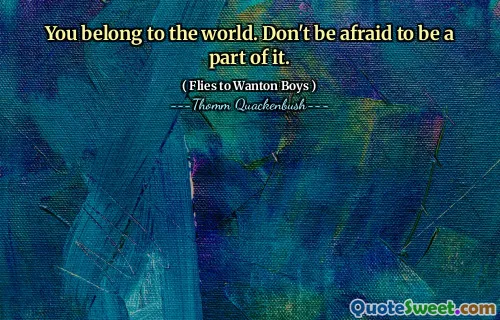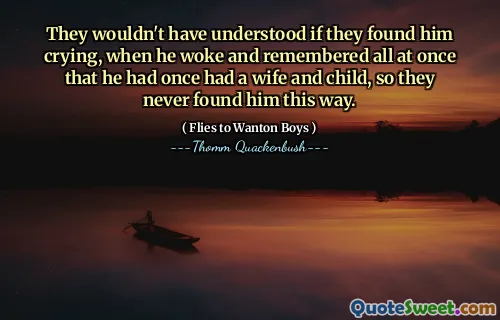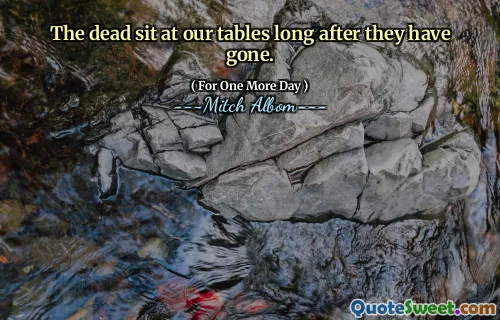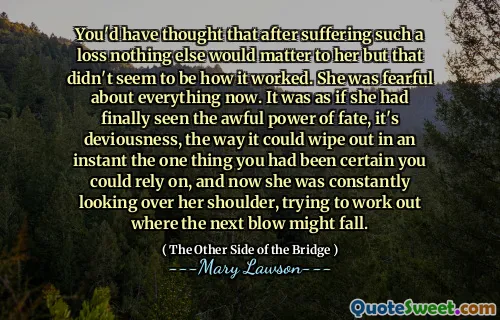
They wouldn't have understood if they found him crying, when he woke and remembered all at once that he had once had a wife and child, so they never found him this way.
This quote evokes a profound sense of isolation and grief that is both deeply personal and universally human. The imagery of a man waking to the sudden and overwhelming memory of lost loved ones digs into the emotional complexity of sorrow and remembrance. It highlights how some emotions and experiences are too painful to be openly shared or witnessed by others, emphasizing the solitude of grief. There is a certain protective barrier formed by those around him, not out of neglect, but perhaps out of a lack of understanding and the fear that such raw sadness might be unbearable to witness. It prompts reflection on how society often struggles to acknowledge the depth of individual suffering, especially when it's invisible or privately concealed. This restraint also touches upon the idea that some memories, particularly those tied to loss, can only be borne alone, creating an emotional distance that can feel isolating. From a literary perspective, the quote reveals layers of human vulnerability and the ways in which people cope with trauma silently. It reminds the reader to be compassionate toward unseen struggles and recognize that the magnitude of someone's pain may often go unnoticed. It also raises questions about connection, empathy, and the difficulty in bridging the gap between one’s internal experiences and external realities. Ultimately, the passage underscores that human sorrow often resides in places where others cannot follow, and that acknowledging this solitude is part of respecting the authenticity of grief.






